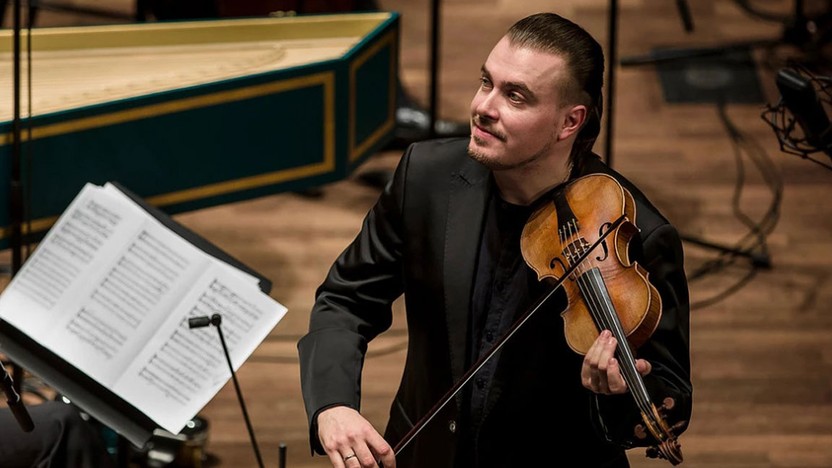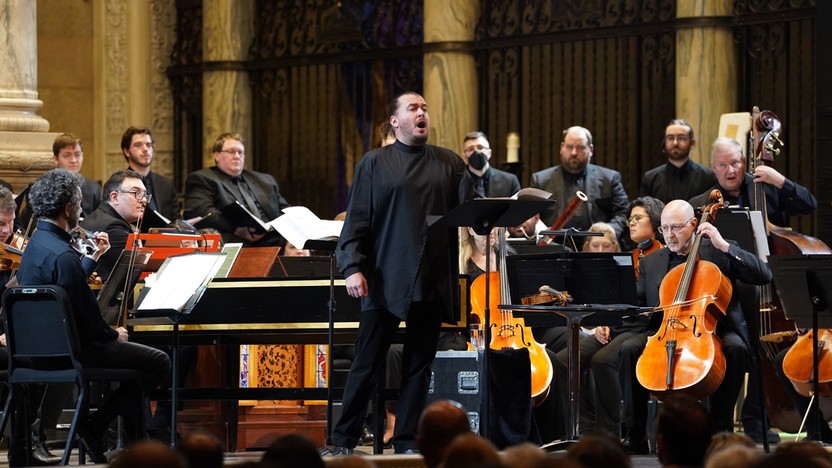Details
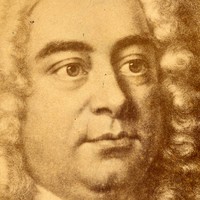
George Frideric Handel
Overture to Agrippina (4 min)
George Frideric Handel fell in love with opera as a teenager, and from the time of his first job playing violin in the opera orchestra in Hamburg, he dreamed of composing his own. He moved to Italy so he could learn from the best in the epicenter of the art form, and while there he won over several cardinals who supported him and commissioned pieces. He even collaborated on an opera with one, using a libretto supplied by Cardinal Vincenzo Grimani. Agrippina, set in ancient Rome during the reign of the Emperor Nero, was a hit when it premiered in 1709 in Venice. Ironically, this Italian opera begins with an Overture in the French style: The outer sections are slow and regal, filled with noble “dotted” rhythms (the snapping alternation of short and long notes), while the central body of the Overture strikes up lively counterpoint.
Aaron Grad ©2025

George Frideric Handel
Concerto Grosso No. 6 (17 min)
As London’s love affair with Italian opera began to fade in the late 1730s, George Frideric Handel knew he had to adjust to keep his lucrative theater business afloat. He landed on a solution that resulted in a new form of oratorio, sung in English by soloists and choir on a concert stage, and often dramatizing biblical subjects. To ensure his audience was enticed to come to the second season of those oratorios in 1740, he advertised that he would also be performing new instrumental pieces during the intermissions. London was obsessed at the time with the concerto grosso style pioneered in Rome by Arcangelo Corelli, and so Handel wrote his own set of “Grand Concertos” for the same combination of violin and cello soloists, string ensemble and basso continuo. Since he usually had oboes on hand for the oratorios, he added optional parts for them in some of the concertos, including this Concerto Grosso in G Minor (Op. 6, No. 6).
Handel stretched Corelli’s model in other ways besides the augmented instrumentation. The slow first movement is extra dramatic, with unaccompanied passages for the three soloists that stand in stark contrast to the fullness of the ensemble, and a drawn-out ending that reaches its unresolved last chord by passing through an extraordinarily pungent suspension. The second movement adopts Corelli’s model of a fast fugue, but the subject that determines the entire sonic spectrum is overloaded with chromatic passing tones, showing Handel to be every bit as bold in his counterpoint as his German peer Johann Sebastian Bach. The longest and most uncharacteristic movement is the Musette, with its steady bass notes that evoke a bagpipe’s drone. Handel originally wrote a Gavotte finale, but he later replaced it with the two fast movements in the home key of G-minor that help counterbalance the gravity of the Musette.
Aaron Grad ©2025
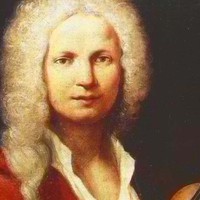
Antonio Vivaldi
Concerto in D for Violin, Two Oboes, Two Horns, Timpani, Strings and Harpsichord (13 min)
Antonio Vivaldi came of age during a glorious boom in violin construction and technique around northern Italy, including his native Venice, where his father was a professional violinist. With a job there teaching violin at a school for orphaned girls, Vivaldi was able to use his talented students to test out his compositions, especially the many concertos — more than 500 by the end of his life — that built on advances made by local peers over the past several decades.
Vivaldi, more than any other composer, was responsible for spreading his region’s musical specialties out into the rest of Europe, through official publications and also the many bootleg copies that musicians shared among themselves. A note on one version of his Concerto in D Major (RV 562a) indicated that it was prepared for the feast of San Lorenzo; that copy was found in Dresden, brought there by a German violinist who had visited Vivaldi in Venice in 1716–17. An alternate version of the concerto made its way to Amsterdam, where it was performed in 1738 to help celebrate a theater’s centennial.
As opposed to the solo concertos he is best known for, this is a relatively rare example of Vivaldi working in the concerto grosso style more associated with Corelli and the Roman sphere of influence further south. The large solo group consists of violin, two oboes, two horns, and a singular case of Vivaldi using timpani in a solo role. The horns and timpani team up for bright outbursts redolent of outdoor hunting parties, while the oboes are offer a delicate contrast. The violin handles the most virtuosic passages of the outer movements, and it appears as the lone soloist in the ephemeral Grave at the center of the concerto.
Aaron Grad ©2025
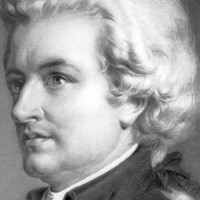
Wolfgang Amadeus Mozart
Symphony No. 40 (27 min)
Wolfgang Amadeus Mozart wrote his three final symphonies in the span of eight weeks during the cash-strapped summer of 1788, when he was reduced to pleading with friends for loans, moving his growing family to the suburbs, and pursuing dead-end leads for his music. Whatever opportunity prompted the symphonies seems not to have panned out, and he probably didn’t hear all three before he died. He did revisit the G-minor symphony at some later point to add clarinets and make other adjustments, suggesting that he found an audience for that one at least.
The Symphony No. 40 in G Minor was only the second example that Mozart set in a minor key, and it was a world apart from the Symphony No. 25 that he wrote as a seventeen-year-old. This bigger, bolder, proto-Romantic symphony begins with a peculiar and essential quirk of phrasing that assigns the violas to quiver through one measure of bare accompaniment. When the violins enter a moment later with a theme that sighs three times before leaping up, there is a subtle rub between what our ears hear as the strong beat and the underlying architecture of the phrase. The result is a persistent and restless feeling of propulsion, as if each phrase must scrabble forward to stay ahead of the surge.
The Andante second movement is the only portion of the symphony that moves away from the turbulence of G-minor, and even here patterns of hiccupping rhythms and delayed resolutions recall the stormy first movement. The Menuetto is unusually grave for the portion of a symphony that often serves as a light diversion, with respite only coming in the contrasting trio section. The finale, with its heated dialogue of soft and loud phrases, embodies the passion and drama that Mozart honed on the operatic stage, most recently in Don Giovanni.
Aaron Grad ©2025
About This Program
"Bounding with talent and oozing charisma" (Pioneer Press), violinist and conductor Dmitry Sinkovsky returns to the Twin Cities this spring to lead the SPCO in Wolfgang Amadeus Mozart's famed 40th symphony. The dramatic passion of the symphonic work makes for a stunning finale of a concert featuring Baroque works by Mozart's predecessors, George Frideric Handel and Antonio Vivaldi.

